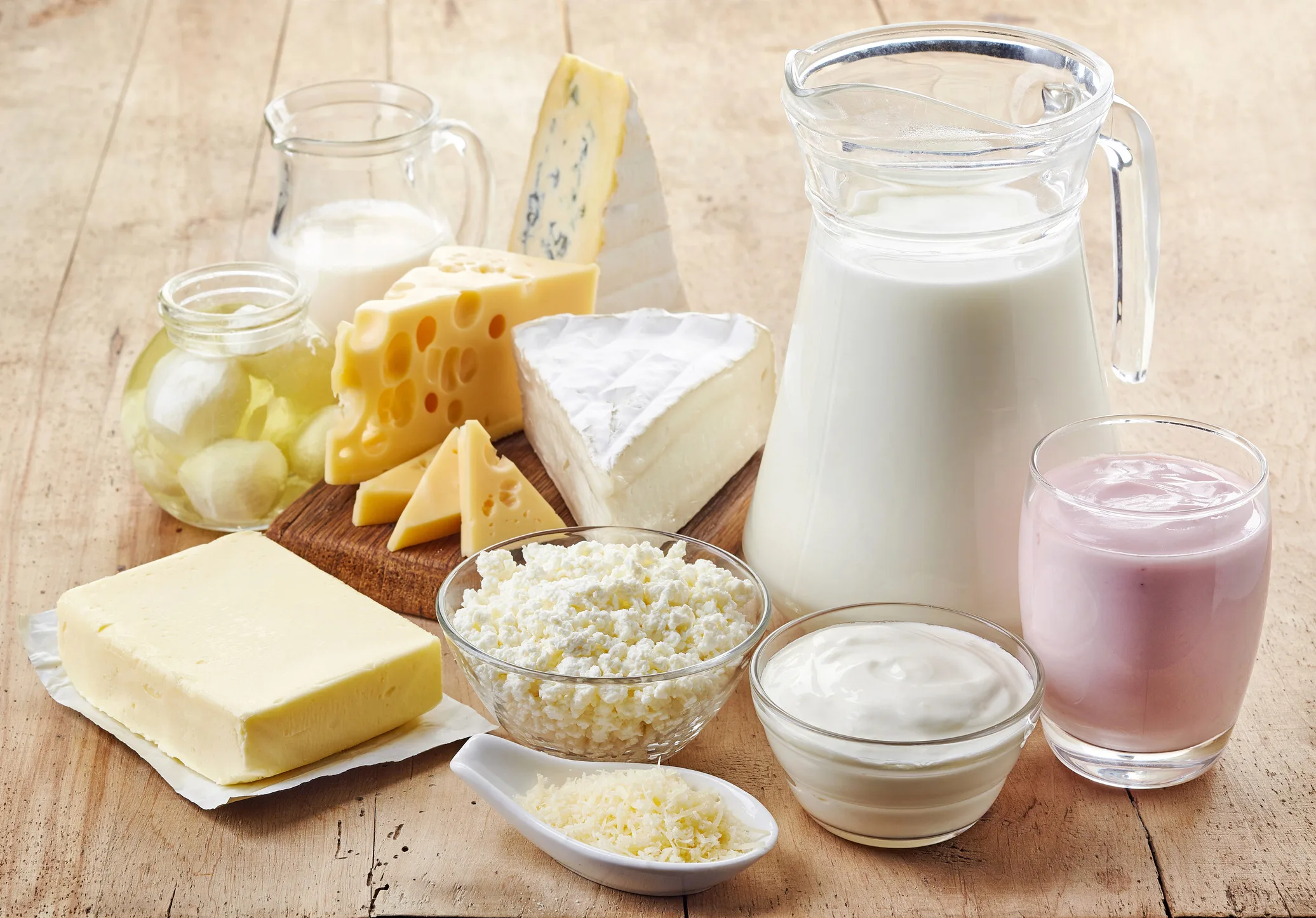Eating dairy products has long been associated with better bone health and growth in children. But recent research also shows that dairy can be a powerful weight loss tool for adults. This awesome discovery overturns the outdated myth that all dairy leads to weight gain.
In this blog post, we will explore the science behind dairy and weight management in depth. You may be surprised to learn how milk, yogurt, cheese and other dairy products can help boost fat burning and keep hunger at bay. Join us as we unveil the truth about how strategic dairy consumption can accelerate your weight loss success.
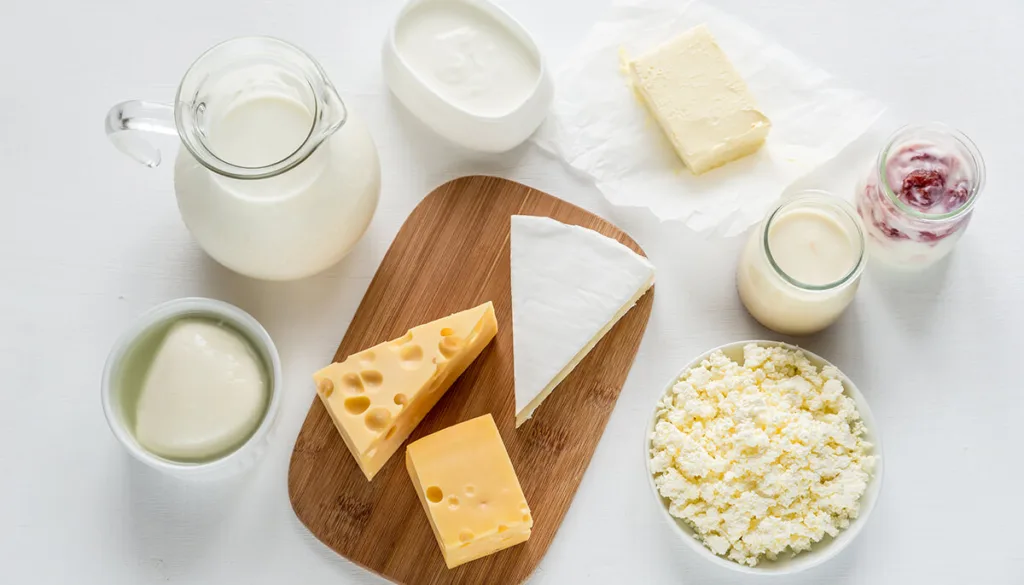
Introduction
Dairy products like milk, cheese and yogurt often get a bad reputation when it comes to weight loss. Some people believe that the fat and calories in most dairy foods lead to weight gain. But this common myth has been debunked by new, powerful research.
The reality is that not all dairy products are created equal. Choosing low-fat or non-fat versions combined with portion control can make dairy a highly effective tool for shedding pounds. The key nutrients in dairy – high-quality protein, calcium, and other vitamins and minerals – offer several weight loss benefits.
Let’s examine the science and evidence behind using dairy as part of a balanced diet to hit your weight loss goals quickly and effectively. Discovering how to incorporate the right dairy products into your meal plan can help boost fat burning, curb cravings, and leave you feeling satisfied.
The Science of Dairy and Weight Loss
To understand how dairy can contribute to fat loss, we first need to look at its complete nutritional composition:
High-Quality Protein
Dairy products contain varying amounts of protein, depending on the variety. For example, one cup of nonfat milk contains 8 grams of protein, while the same amount of nonfat Greek yogurt provides nearly 20 grams.
Compared to other protein-rich foods like meat and eggs, dairy protein results in greater muscle protein synthesis – the process of building and repairing lean muscle mass. Maintaining muscle while in a calorie deficit is crucial for sustainable weight loss.
The high protein content of dairy foods can help increase your metabolism and fat burning potential. Protein requires more calories for your body to break down than carbohydrates or fat. So eating foods higher in protein naturally boosts your metabolic rate.
Protein also helps regulate appetite and food intake by promoting satiety and keeping you feeling fuller for longer after eating. Combined with its thermogenic effect of increasing calorie burn, the power of protein makes dairy a metabolic powerhouse.
Calcium
Many dairy products like milk and yogurt are rich sources of calcium, containing 30% or more of your daily needs per serving. Calcium supports several bodily functions critical for health and metabolism.
Getting enough calcium is associated with lower body fat and faster fat loss when cutting calories in research studies. Exactly how calcium influences weight is not fully understood, but it may help your body better break down fat cells and inhibit new fat formation at the cellular level.
Higher calcium intake seems to target fat in the abdominal area in particular. Since visceral belly fat is linked to many chronic diseases, this is an added boon to dairy consumption. Calcium also promotes fat oxidation – converting fat into energy – during exercise.
Vitamins and Minerals
In addition to protein and calcium, dairy foods contain a range of other vitamins and minerals. Many varieties are excellent sources of potassium, phosphorus, magnesium, zinc, selenium and B vitamins.
Potassium supports healthy fluid balance, bone strength, and muscle power output. Phosphorus aids bone formation, energy production, and protein synthesis. Magnesium is involved in over 300 enzyme reactions and helps regulate blood glucose and insulin levels.
Zinc assists immune function, thyroid hormone activity, and protein metabolism. Selenium acts as an antioxidant and promotes a healthy metabolism. The suite of B vitamins play key roles related to energy metabolism and neural function.
This broad spectrum of micronutrients supports many bodily processes related to energy, immunity, hormone function, and metabolism. The nutritional completeness of dairy foods provides a variety of key compounds to accelerate weight loss.
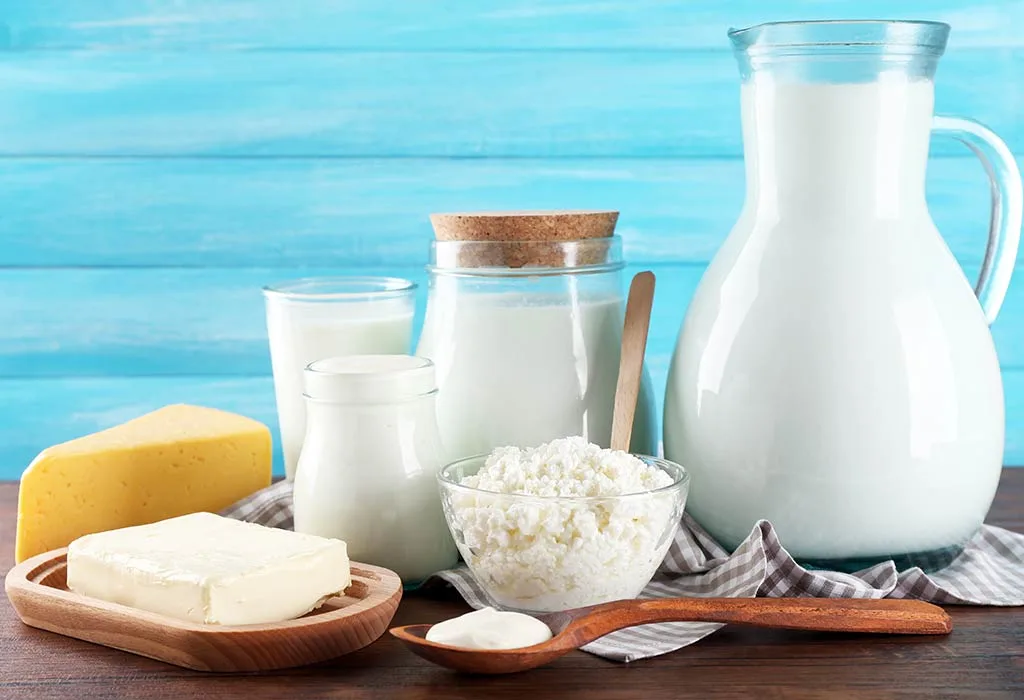
Dairy Products and Metabolism
One of the major ways dairy can contribute to weight loss is through its metabolites – unique compounds formed during digestion. Multiple studies show dairy consumption can:
- Increase your resting metabolic rate and total daily energy expenditure, meaning you burn more calories around the clock
- Reduce respiratory quotient, indicating greater reliance on fat for fuel
- Boost fat metabolism and oxidation, which breaks down fat for energy
- Support diet-induced thermogenesis, or heat production in response to eating, further ramping up fat burn
One metabolite in particular, called trans-palmitoleate, may be responsible for these metabolic benefits. Trans-palmitoleate is a natural fatty acid found in dairy foods that results from the digestion of milk fats.
Research shows people with higher circulating levels of trans-palmitoleate in their bloodstream have lower body fat percentages, smaller waists, healthier lipid profiles, and reduced risk for diabetes.
While the exact mechanisms are still being unraveled, trans-palmitoleate seems to play an important role in fat metabolism regulation. Consuming dairy provides this compound to help your body better break down and utilize fat for fuel.
Beyond influencing metabolism directly, other compounds in dairy help suppress appetite indirectly. So consuming sufficient dairy gives you a two-pronged attack – burning more calories while feeling less hungry. This powerful combination accelerates fat loss.
Choosing the Right Dairy Products
Clearly, dairy offers some impressive weight loss advantages. But you need to choose your products wisely to maximize results:
- Go low-fat or fat-free: Versions lower in fat naturally have fewer calories, allowing you to eat larger portions. They still provide the same amount of metabolism-boosting protein and calcium for minimal calories.
- Watch portion sizes: While dairy can absolutely aid fat burning, total calories still matter for weight loss. Stick within recommended serving sizes like 1 cup milk or yogurt, 1.5 ounces of real cheese.
- Compare options: For satisfying protein, prioritize Greek yogurt and cottage cheese over creamier, carb-heavy versions. Choose hard, low-moisture cheeses that offer more protein over soft, fresh cheeses.
The key is to experiment and find the dairy products you enjoy that align with your weight goals and dietary needs. Building your diet around low-calorie, protein-rich dairy options is crucial.
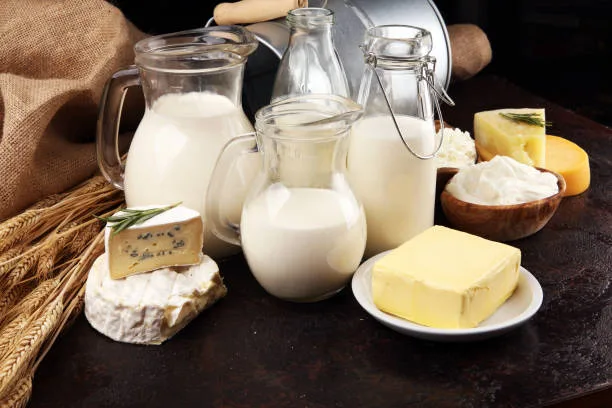
Dairy and Satiety
In addition to ramping up your metabolism, dairy products provide another useful benefit – increased satiety. Foods that make you feel fuller for longer naturally reduce overall calorie intake. Here’s how dairy achieves this:
- High protein content: The abundant protein in dairy slows digestion and regulates hunger hormones, keeping appetite in check.
- Thick, rich texture: The indulgent, creamy texture of milk, yogurt and cheese leads to longer-lasting feelings of fullness compared to drinks or foods with a thinner consistency.
- pH and digestion: Dairy protein takes longer to break down in the stomach due to the interaction between the pH of dairy and enzymes involved in protein digestion. This results in prolonged satiety after eating dairy products.
Some simple strategies to capitalize on dairy’s satiating effects include:
- Having Greek yogurt or cottage cheese with breakfast
- Snacking on an ounce of hard cheese slices
- Ending meals with a dessert made with milk, yogurt or low-fat ice cream
The pleasant mouthfeel and satiating properties of dairy make it easier to cut calories without feeling deprived. Dairy’s impact on satiety provides yet another route to better weight control.
Potential Pitfalls and Allergies
While dairy can absolutely play a beneficial role in weight management for most people, there are some potential drawbacks to be aware of:
- Lactose intolerance: Some individuals lack enough of the lactase enzyme to properly digest lactose, the natural sugar in dairy products. This can lead to gas, bloating, and other gastrointestinal issues. Choosing lactose-free varieties or taking a lactase enzyme supplement allows the enjoyment of dairy without discomfort.
- High-fat varieties: Full-fat cheeses, creams, and milks contain significantly more calories and saturated fat. Limit high-fat options and stick to low-fat or nonfat dairy if trying to maximize weight loss.
- Milk allergies: True allergies to cow’s milk protein affect under 1% of children and are even rarer in adults. But a dairy allergy requires avoiding milk proteins completely. In this case, plant-based milks, yogurts, and cheeses would be suitable alternatives to dairy.
With sound nutrition advice and suitable plant-based or lactose-free substitutions, most people can work around these pitfalls to benefit from dairy’s weight loss advantages.
Balancing Dairy in Your Weight Loss Plan
While spotlighting dairy’s slimming effects, keep in mind no one food holds the key to weight loss on its own. To effectively lose weight while preserving muscle mass, you need a balanced, holistic approach:
- Moderate calorie deficit: Create a reasonable daily deficit of 500-1000 calories through diet and exercise. Larger deficits tend to backfire and cause muscle loss.
- Adequate protein intake: Get around 0.5-1 gram of protein per pound of body weight daily from both plant and animal sources. Dairy is an excellent way to boost protein.
- Fiber from produce: Fruits, vegetables, beans, lentils and whole grains provide fiber for digestive health, gut microbiome support, and satiety.
- Healthy fats: Don’t fear fats from olive oil, nuts, seeds, avocado, and fatty fish. In fact, these unsaturated fats support hormone function, vitamin absorption, and heart health.
Here’s a sample day of eating using dairy to enhance weight loss as part of a balanced diet:
- Breakfast: Nonfat Greek yogurt with berries, chia seeds, oats
- Mid-morning: Cottage cheese and raw veggies
- Lunch: Grilled chicken sandwich with spinach, low-fat cheese on whole grain bread
- Afternoon: Hummus and carrots
- Dinner: Garlic shrimp with quinoa and steamed broccoli
- Evening: Berry smoothie made with milk or kefir
As you can see, dairy can readily be incorporated into meals and snacks to boost protein, improve satiety, and provide key nutrients to augment body composition and overall health.
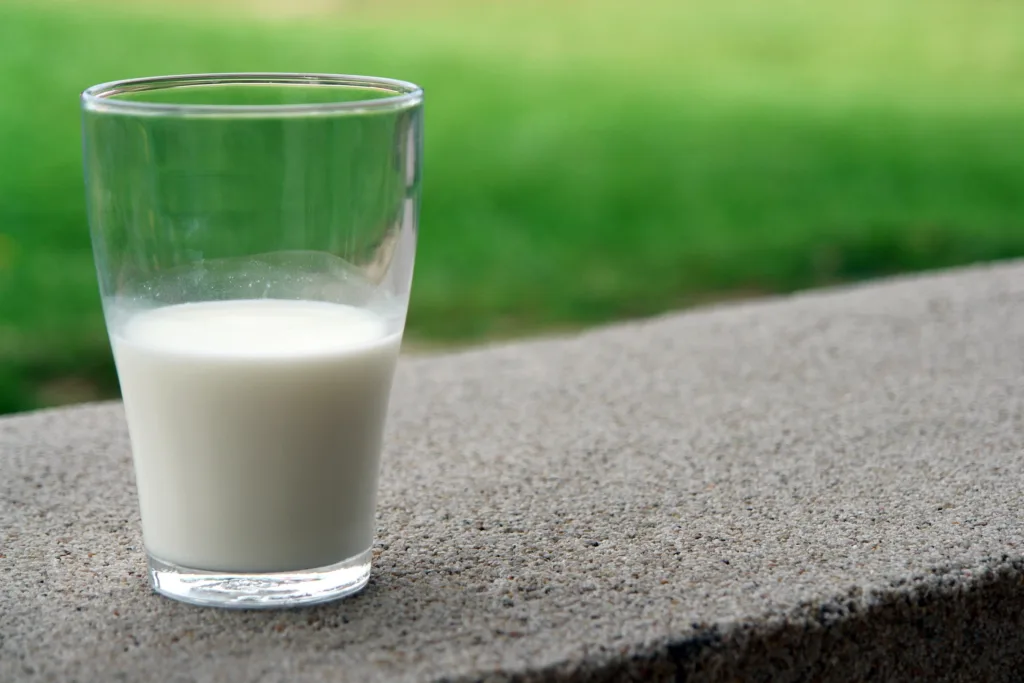
Conclusion
Many people still consider dairy a dietary villain that promotes weight gain. But current research powerfully demonstrates that low-fat dairy products can play a helpful role in fat loss. When consumed as part of a calorie-controlled, well-balanced diet, dairy provides a metabolic triple threat – increased fat breakdown, appetite suppression, and greater calorie burn.
Choosing the right low-fat or nonfat dairy foods helps balance your total nutrient intake for success. The high protein, calcium, vitamins and minerals in dairy complement plant-based foods and lean meats nicely. While watching calories and portions, don’t fear dairy. Embrace the powerful, synergistic effects the right dairy choices offer to accelerate your weight loss results.
Join Us!
Thank you for joining us to uncover the truth about dairy and weight loss! We hope this in-depth post has shown how you can strategically use dairy to your advantage. Subscribe to our newsletter using the link below for more insights and tips. We regularly share new content on food, nutrition, health and wellness.
Thank you for reading this post, don't forget to subscribe to our free newsletter
!
